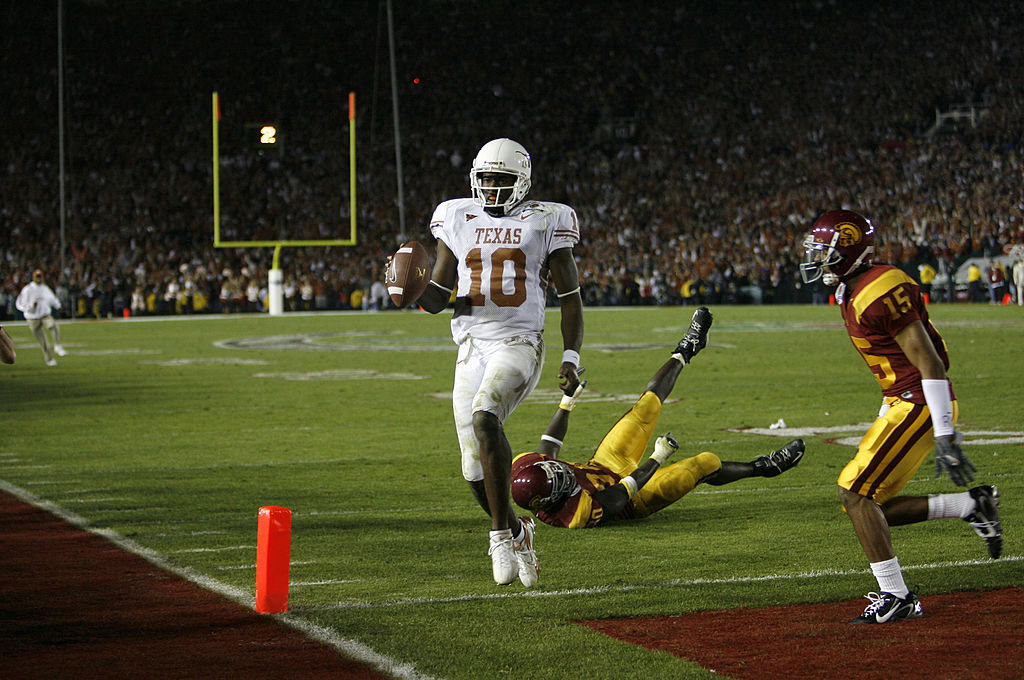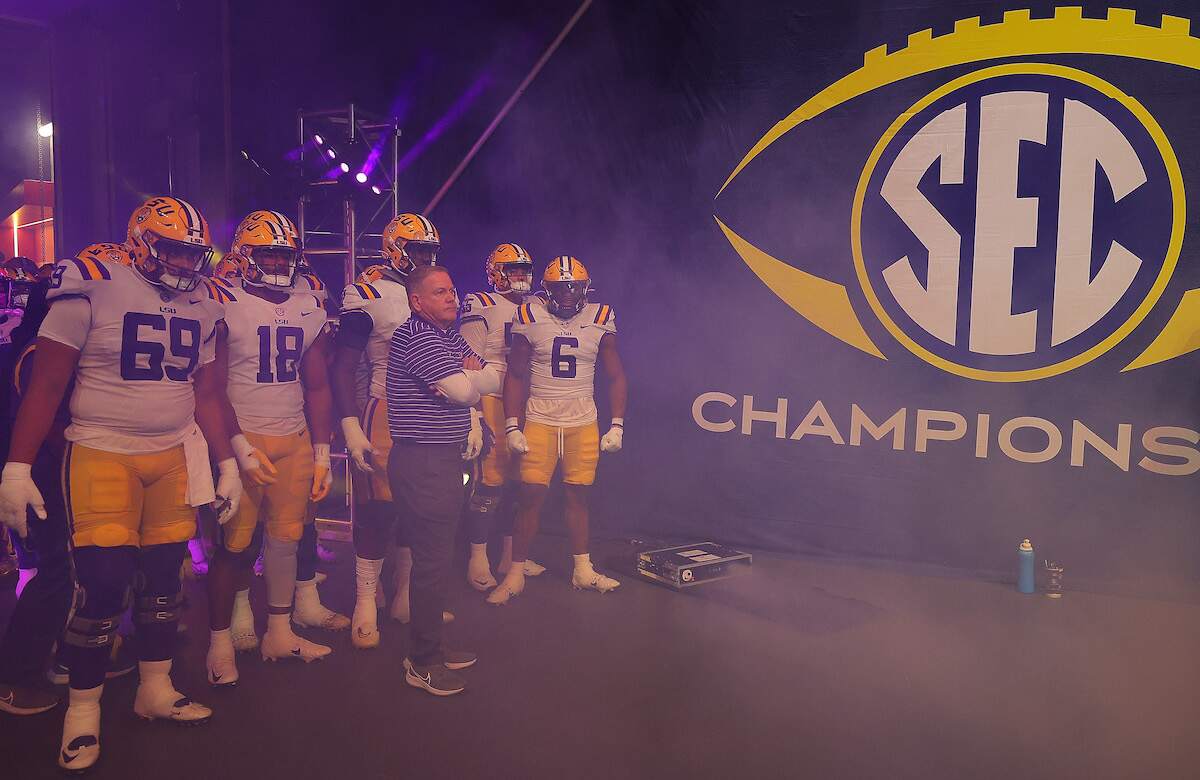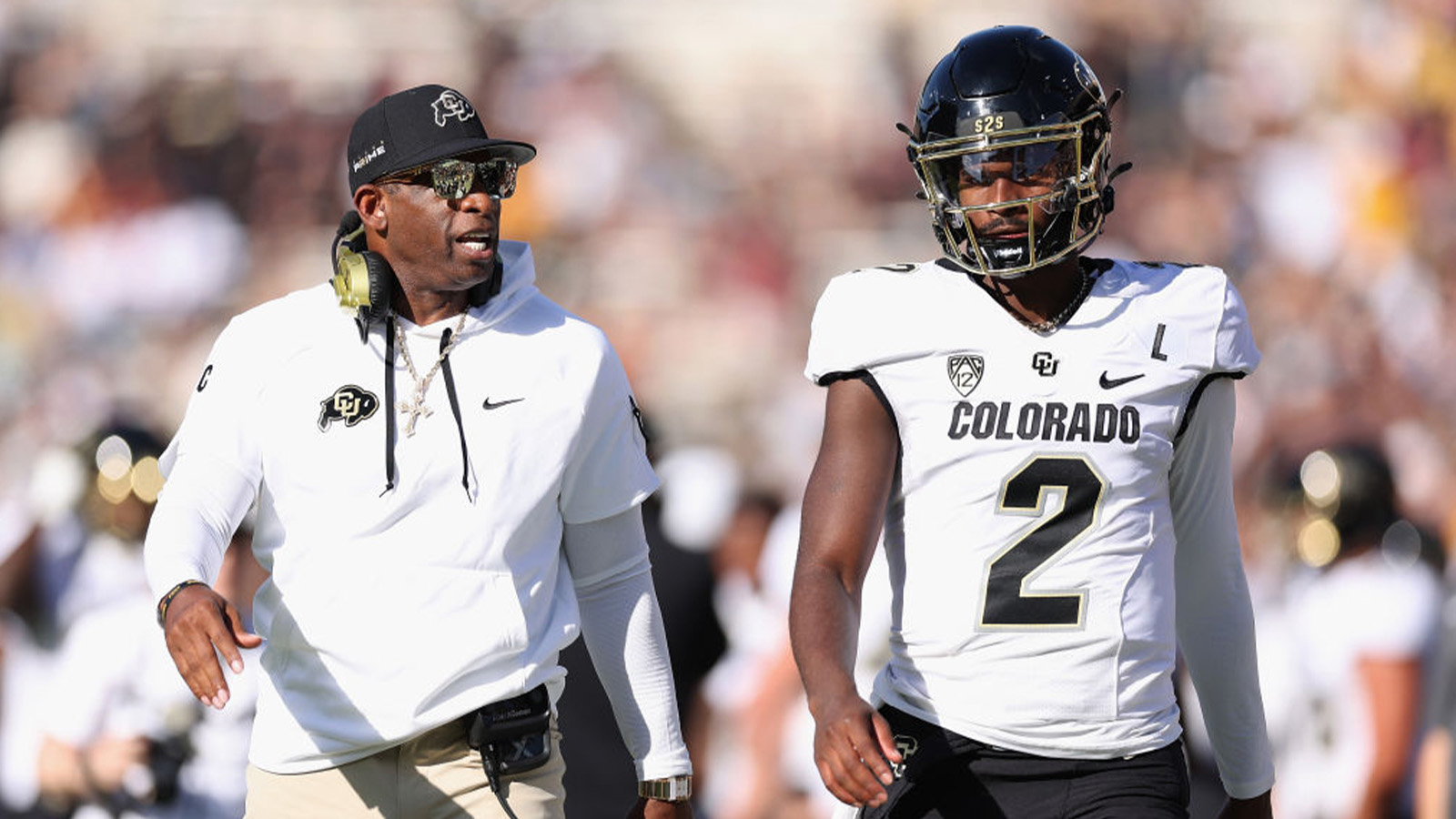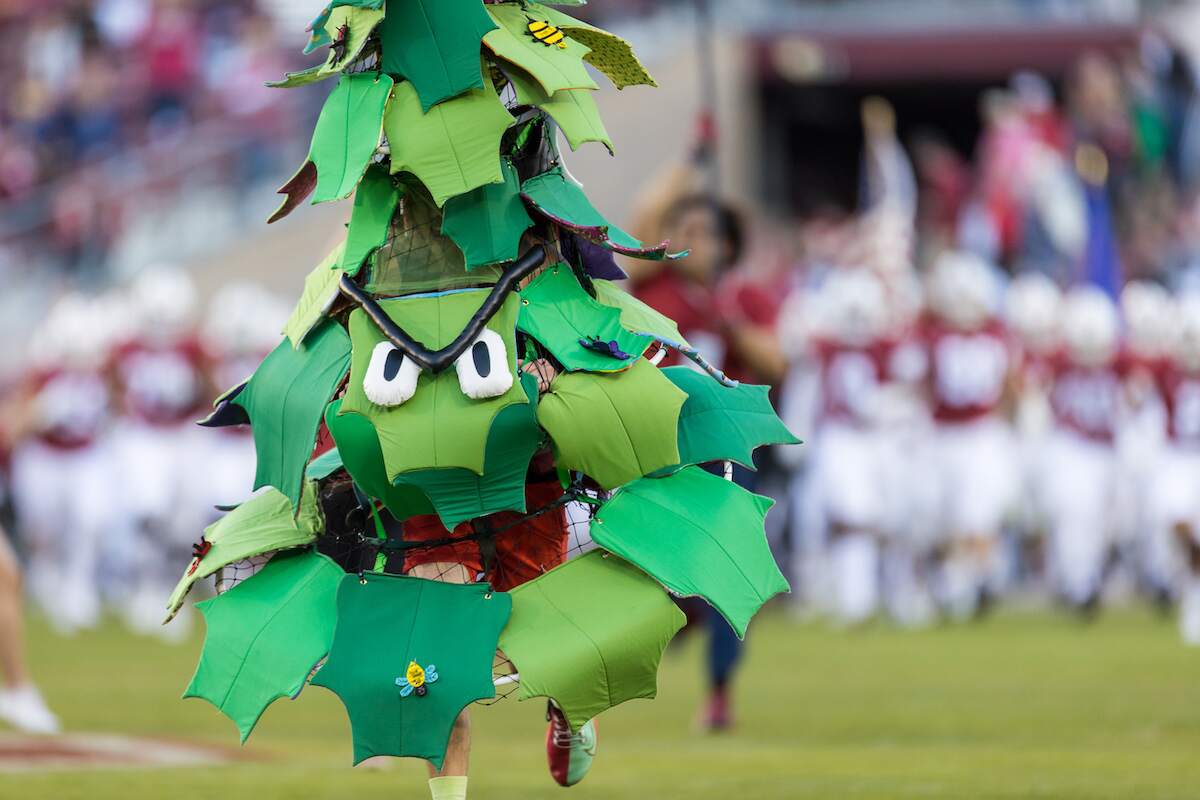
2006 Rose Bowl: Texas vs. USC—The Greatest College Football Game Ever Played
So often, the big games don’t live up to the hype. The 2006 Rose Bowl/BCS National Championship match-up between the No. 1 USC Trojans and No. 2 Texas Longhorns doesn’t fall into that category. The two teams entered the 2005 season ranked first and second and maintained their perfect records throughout the year on a collision course with each other and a date with history.
What happened that January night in Pasadena not only lived up to the expectations, it spectacularly surpassed them and will forever be known as the single greatest game in college football history.
USC on a historic college football run
The Pete Carroll-coached USC Trojans entered the season atop the rankings and the prohibitive favorite to win the national title. After winning the Pac-10 title, the defending national champion Trojans entered the Rose Bowl on a 34-game winning streak in search of a third-straight national title—a three-peat.
The USC roster was loaded on offense, ranked second in the nation behind Texas, and featured two Heisman Trophy winners in Matt Leinart and Reggie Bush (the NCAA later stripped Bush of his award). It marked the first and only time a pair of Heisman winners played on the same team in the same game. Bush had company in the backfield with the punishing Lendale White.
While the USC defense didn’t receive as much attention, it was a solid group led by future NFL starters in Clay Matthews, Brian Cushing, and Frostee Rucker.
Longhorns feature impressive record and roster
The University of Texas arrived in Pasadena as the Big 12 Champions with the second-longest active winning streak in college football at 19 games, including a 2005 Rose Bowl victory over Michigan a year earlier.
The Longhorns offense was directed by quarterback Vince Young, who many thought deserved to win the Heisman that year but instead finished second behind Bush. In addition to Young, the Texas offense featured a young freshman tailback in Jamaal Charles, along with tight end David Thomas.
The Texas defense had its share of talent as well, including future NFL regulars Michael Huff, Brian Orakpo, Brian Robison, Michael Griffin, and Aaron Ross.
A slow start to a low-scoring first half
In the opening quarter, both defenses came out strong and managed to stymie the opposing high-powered offenses. The only points in the quarter came on a 4-yard touchdown run by USC’s Lendale White. The lack of offensive production from both teams didn’t last long.
The second quarter didn’t start well for the Trojans as Reggie Bush broke free on a 35-yard pass play before lateraling the ball to no one in particular. Texas’ Michael Huff recovered and the Longhorns drove down and got on the board with a field goal.
On USC’s ensuing possession, Leinart guided the Trojans deep into Texas territory but was denied when Texas free safety Michael Griffin made an improbable interception in the end zone to snuff out the scoring threat.
The Longhorns capitalized on USC’s mistakes scoring 16 unanswered points including a pair of touchdowns to take a 16-7 advantage. With momentum clearly on the burnt orange sidelines, USC’s Mario Danelo kicked a field goal to close out the half and the Trojans trailed 16-10 at the break.
The back-and-forth second half
The Trojans came out strong to start the second half. USC’s defense shut down the Texas offense on its opening possession, and then Leinart and the USC offense went to work. Seven plays later White added his second touchdown of the game and the Trojans reclaimed the lead 17-16.
Both teams traded touchdowns to end the third quarter. Heading into the fourth quarter, USC led 24-23. Exactly what you would expect from the No. 1 and No. 2 teams in the country. What happened in the next 15 minutes catapulted the game into iconic status.
Bush opened up the fourth with a 26-yard touchdown run that put the Trojans up by eight. After the Longhorns kicked a field goal, USC answered with a 22-yard scoring strike from Leinart to receiver Dwayne Jarrett. USC maintained a 12-point advantage, its biggest lead of the game, with just seven minutes remaining.
Vince Young cements his status as a Longhorn legend
To Longhorn fans, a 12-point deficit wasn’t concerning. With No. 10 under center, no opponent’s score ever seemed like too much to overcome. Young had done it time and again throughout his three years in Austin.
On the next Longhorns’ possession, Young accounted for all 69 yards on a scoring drive that took less than three minutes. On that drive, Young completed five passes and rushed for 25 yards, including a 17-yard touchdown run that narrowed the lead to 38-33.
After the Texas defense made a critical fourth-and-2 stop near midfield, Young and the Longhorns offense took over on their 44-yard line. The Texas quarterback attacked the Trojans defense using a mix of throws and runs as the Longhorns made their way deep into USC territory.
With 26 seconds remaining, Texas faced fourth-and-5 on the USC 9-yard line. Young received the shotgun snap, looked to his left, and with his receivers locked up, dashed toward the right sideline. He outraced all the USC defenders to the end zone just inside the right pylon for the winning score.
What happened after the game
The Longhorns won the BCS National Title game 41-38, and Young had just put on one of the best individual all-time title game performances. He finished with 467 total yards of offense, including 200 rushing yards and three rushing touchdowns on 19 attempts. He was named the Rose Bowl MVP for a second consecutive year.
Many experts and analysts believe the 2006 Rose Bowl was the greatest game in college football history, and the television ratings agreed. It was the highest-rated BCS game with 21.7 percent of households tuned in to watch.
With so much build-up heading into the contest, many weren’t sure it would live up to the expectations. In fact, several ESPN analysts had coronated USC the champ before the game saying the Trojans were the best team in college football history. Vince Young had other ideas that night. His Herculean effort dethroned the defending national champs and the Longhorns had earned their place in college football history.



